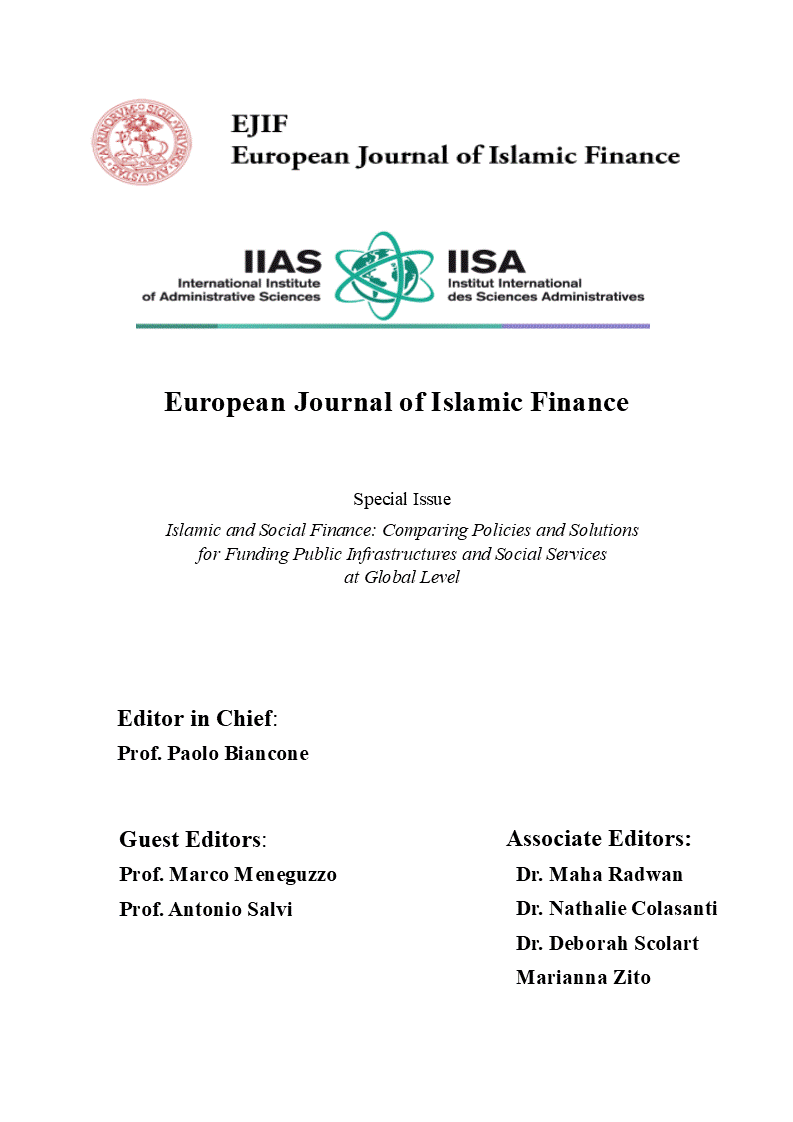Real Estate, Usufruct Right and the Issue of the Waqf Assets in Egypt.
DOI:
https://doi.org/10.13135/2421-2172/3064Keywords:
Egypt, Real Estate, Usufruct Right, WaqfAbstract
In the last decade, Egypt became more and more integrated with the global economy starting from its participation in the Union for Mediterranean (UfM), a partnership with the goal of creating a European Mediterranean Free Trade Area (EMFTA). Nevertheless, Egypt has been and still is an Islamic State still retaining some of the characteristics of the traditional Islamic legal system. This coexistence of Western practices and values of Islamic tradition makes it a fascinating case study in the field of economy and law.
In this paper we will pay particular attention to the development of the law of real estate and land property in Egypt; specifically, we will illustrate how the Islamic character of Egyptian traditional law, attempts of international openness and Egyptian nationalism has combined together during the years.
Firstly, we will summarise the key points in the process of reforms that have been put into practice starting from the Prime Ministerial decree 350/2007 establishing that companies and enterprises have the right to own real estates and lands regardless of their nationality or the nationality of their partners and shareholders. This opening to foreign companies was strongly discourage in 2012, by law no. 14 which gives the Minister of the Defence the responsibility of setting regulations concerning land attributions in the Sinai Peninsula. Minister of the Defence banned any foreigners land ownerships (so called ‘Sinai law’), this decision severely affecting the real estate market in the Sinai area, where foreign investments had been a key factor. In 2015 amendments to law no 14 have been introduced, loosening the restrictions on investors that wish to acquire land rights in the area on the Sinai Peninsula. It extends the scope of persons that are outside the range of the Sinai law allowing Non-Egyptians that receive title to a land by inheritance, testament or gift to keep the right of usufruct under certain conditions.
We will then focus on the crucial role of the usufruct right. We point out that due to the above-mentioned legal innovation, the usufruct system in Egypt also upholds national security, and guarantees that land–especially that of a special nature like the Sinai Peninsula–will not fall into the hands of foreigners.
A particular case of usufruct is the “waqf” or religious endowment, consisting of income-producing property whose usufruct is assigned by its original owner to a mosque or to carry out charitable works (e.g. building schools, orphanages and hospitals). The original owner of an endowed property retains his or her ownership in it, but the usufruct right is conveyed to an endowment authority. In Egypt, the Endowments Authority, established since 1971, is affiliated with the Ministry of Religious Endowments: it is the sole competent authority empowered to manage and invest in endowment assets. Such investments can have an impact in real estate system and in the usufruct right scheme in the name of a more pervasive State involvement in this field of investments. All these aspects will be broadly analysed in this paper.Downloads
Published
How to Cite
Issue
Section
License
EJIF content is licensed under a Creative Commons Attribution 4.0 International License.
Authors keep the copyrights for their work and give the journal the work's first publication copyright, which is at the same time licensed under a Creative Commons License – Attribution, which in turn allows other parties to share the work with an acknowledgement of the work's authorship and initial publication in this journal.


 EJIF has been approved for inclusion in
EJIF has been approved for inclusion in  EJIF has been approved for inclusion in
EJIF has been approved for inclusion in  EJIF is a member of
EJIF is a member of  EJIF is listed in the ANVUR (Italian National Agency for the Evaluation of Universities and Research Institutes) as a scientific journal in both
EJIF is listed in the ANVUR (Italian National Agency for the Evaluation of Universities and Research Institutes) as a scientific journal in both 
